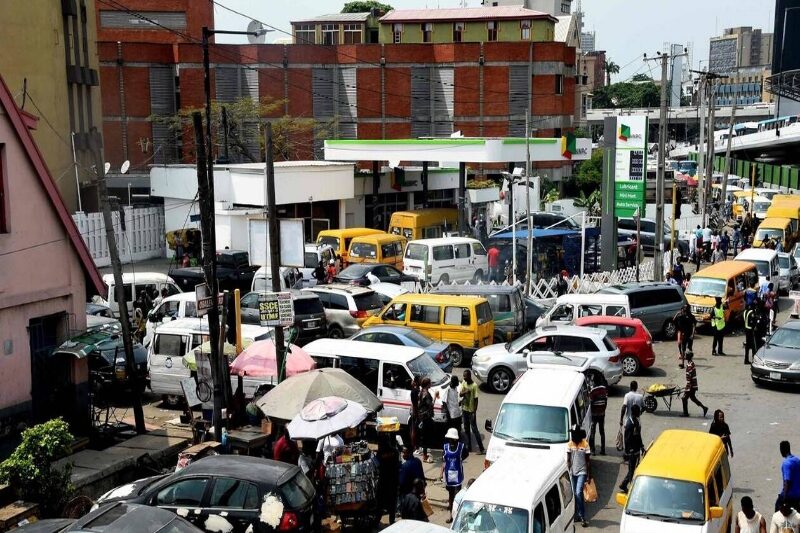Traders in Borno State have been losing money hand over fist since the Economic Community of West African States (ECOWAS) ordered the closure of all borders between Nigeria and Niger in an effort to put an end to the coup and get the Nigerien president, Mohamed Bazoum, reinstated.
All seven borders between the two countries have been closed and the once busy trans-Saharan road corridor – usually bustling with traffic – is quiet.
The Nigerian states affected by the border closures are Sokoto, Kebbi, Katsina, Zamfara, Jigawa, Yobe and Borno.
The Trans-Saharan Road corridor is a vital trading route for Nigeria, connecting the country to its landlocked neighbours – Algeria, Chad, Mali, Niger and Tunisia – in the Sahel region.
BusinessDay reported that the closure of the corridor route had put US$1.3 billion worth of trade at risk.
The border between Borno State and Niger had been closed years ago because of the 14-year insurgency. But traders had continued to do business by crossing the border on foot. Now all trading had come to a standstill and the livelihoods of thousands of people were under threat.
In the other northern states in Nigeria where borders had been ordered to be closed, residents said their businesses had been negatively affected and the cost of living had increased because no goods were coming into Nigeria from its neighbour.
In addition to closing land borders, ECOWAS declared a no-flight zone over Niger.
ECOWAS and the West African Monetary and Economic Union imposed the stringent sanctions on Niger after the July 26 coup. They want the military junta in the country to step down and Bazoum to be reinstated immediately.
The bloc did not go ahead with its threat to send military forces into Niger if the coup leaders failed to restore democracy and reinstate Bazoum before Sunday, August 6. Leaders of the bloc said on Monday that they would meet on Thursday, August 10, to discuss the next steps.
Reuters reported that the bloc had suspended all commercial transactions with Niger, frozen its state assets in the regional central bank, frozen assets of the state and state enterprises in commercial banks, and suspended all financial assistance with regional development banks.
It said the ECOWAS sanctions also meant that Nigeria had cut power supply to the country on the 80-megawatt Birnin-Kebbi line.
Côte d’Ivoire had suspended imports and exports of Nigerien goods.
West Africa’s regional central bank, La Banque Centrale des États de l’Afrique de l’Ouest (BCEAO), shut down its branches in Niger, citing risks to operations.
The news agency said the European Union, one of Niger’s biggest contributors, had suspended its financial support and cooperation on security with Niger with immediate effect.
Maina Ali, a trader from Damasak in the Mobbar Local Government Area of Borno State, told RNI that he bought and sold pepper and other food items in Niger but that his business had come to a standstill because he could no longer get to Diffa.
He said that even though the border between Borno and Niger had been closed for years because of the insurgency, traders had still been able to get into Niger on foot and some of them used transport on the other side to do business.
However, he said, now traders could not even cross the border on foot.
Ali hoped the Nigerian government would not take military action against Niger because that would escalate the already existing insecurity in the northern part of Borno State.
Bulama Masa, also a trader at Damasak, said the coup had negatively affected the business activities of all traders in Mobbar.
He said traders in Diffa in Niger were no longer able to bring their goods to Mobbar because of the strict controls at the border.
Because of the total shutdown of borders, the prices of food had soared, he said. One bag of millet was now selling for ₦30,000, a bag of unprocessed rice was ₦20,000 and one jerrycan of oil was ₦40,000.
He said the government should open the borders – but strengthen security measures – to allow business activities to resume.
Bukar Mohammed, a truck driver who transports goods from Nigeria to Niger, said business activities had been hit hard even before the coup because of the high cost of fuel. But now, with the borders shut, they had worsened.
He appealed to the federal government to resolve the leadership crisis in Niger through diplomatic means because, he said, if war broke out between the two countries it would be the masses who would suffer most, particularly in Borno State.
Baba Goni Bukar, also a truck driver, said he could no longer transport goods or passengers between the two countries and the border closures were affecting his business badly.
He urged the government to reopen the border between Geidam in Yobe State and Diffa in Niger, as well as the Damasak-Diffa border, because they were the most crucial trading routes between the two countries.
Modu Fannami, chairman of Traders’ Association in Damasak, said: “Even before the crisis in Niger, our business of trading large-scale goods from Nigeria to Niger and vice versa was at a standstill because the border between Borno State and Niger has been closed for many years as a result of the insurgency. We were only able to load goods on to trucks from Maiduguri to Damasak. Our trucks could not cross the border into Niger. But local traders were able to cross the border on foot. Now they are no longer able to do that. The government needs to do something because all our businesses are being crippled.”
SHETTIMA LAWAN MONGUNO









